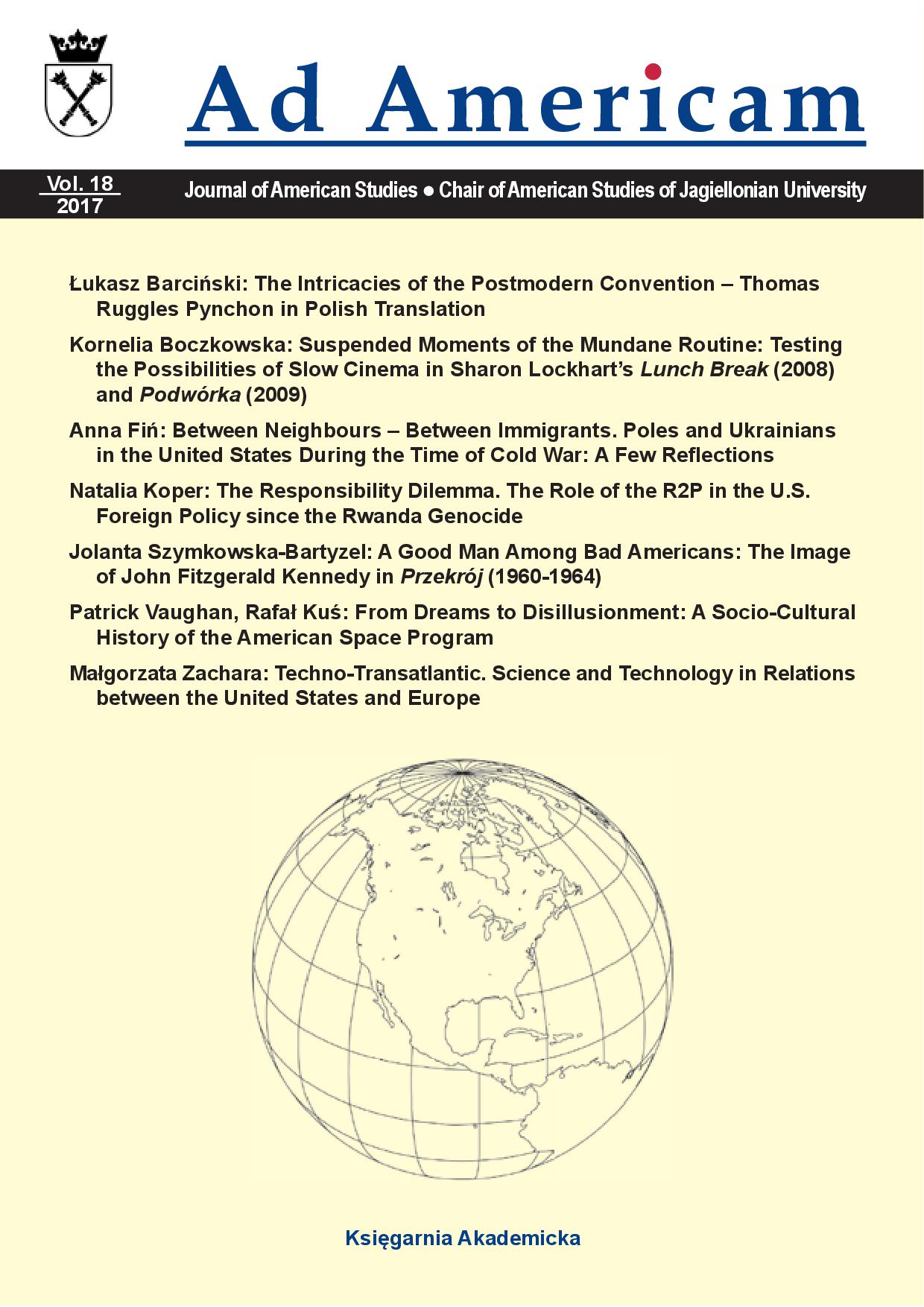The Responsibility Dilemma
The Responsibility Dilemma
The Role of the R2P in the U.S. Foreign Policy since the Rwanda Genocide
Author(s): Natalia KoperSubject(s): Politics, Military history, Political history
Published by: KSIĘGARNIA AKADEMICKA Sp. z o.o.
Keywords: responsibility to protect; US foreign policy; humanitarian crisis; post-Cold War politics; mass atrocities crimes
Summary/Abstract: This paper explores the role of the doctrine of the responsibility to protect (R2P) in shaping U.S. foreign policy in the post-Cold War period. Based on the in-depth study of declassified documents, public speeches, and other documents, this paper examines three case studies (Rwanda genocide, Iraq war, Libya conflict) as representative examples of the U.S. involvement in humanitarian crises abroad. The analysis reveals a consistently evolving narrative of a country fatalistically balancing the dilemma of responsibility. On the one side, having assumed the role of a global leader and norm-carrier, the United States is expected to act accordingly, and intervene in foreign humanitarian crises, safeguarding nations facing grave and continuous violations of human rights. On the other hand, every administration has been faced with the possibility of a backlash from either the public opinion, which does not prioritize humanitarian causes abroad, or the international community, which is not indifferent to violations of the principle of state sovereignty. As a result, the humanitarian narrative, albeit important, has been mainly applied as a secondary resource, and has not been the primary reason for interventions, as demonstrated with a number of inconsistencies in formulating foreign policies and employing the R2P rhetoric.
Journal: Ad Americam. Journal of American Studies
- Issue Year: 2017
- Issue No: 18
- Page Range: 51-63
- Page Count: 13
- Language: English

